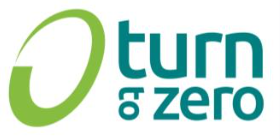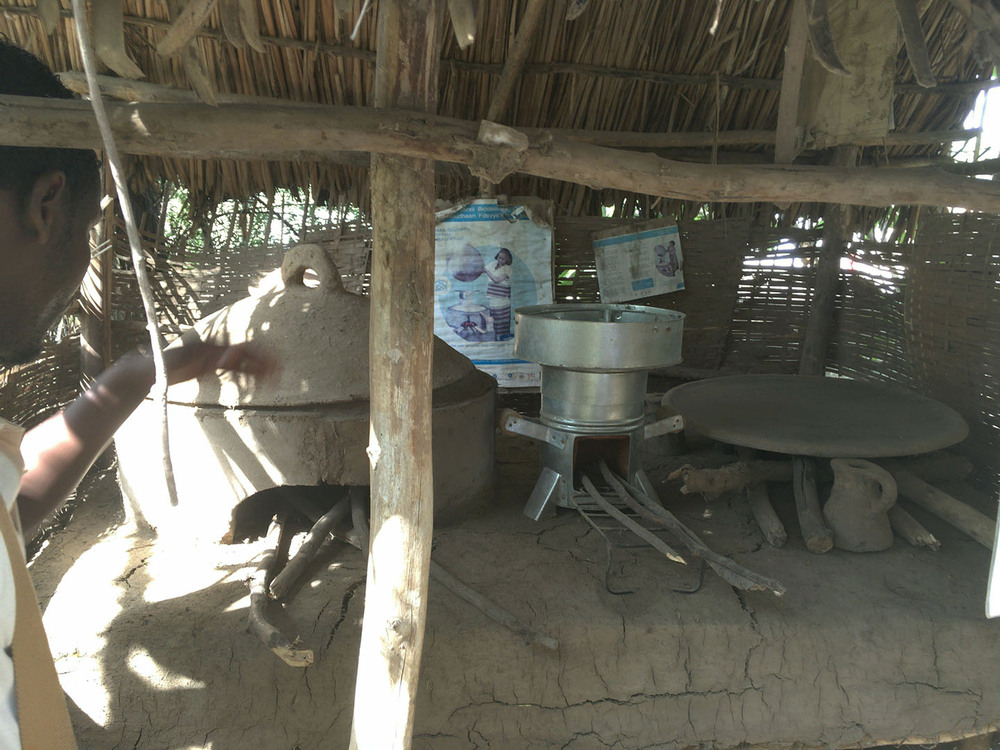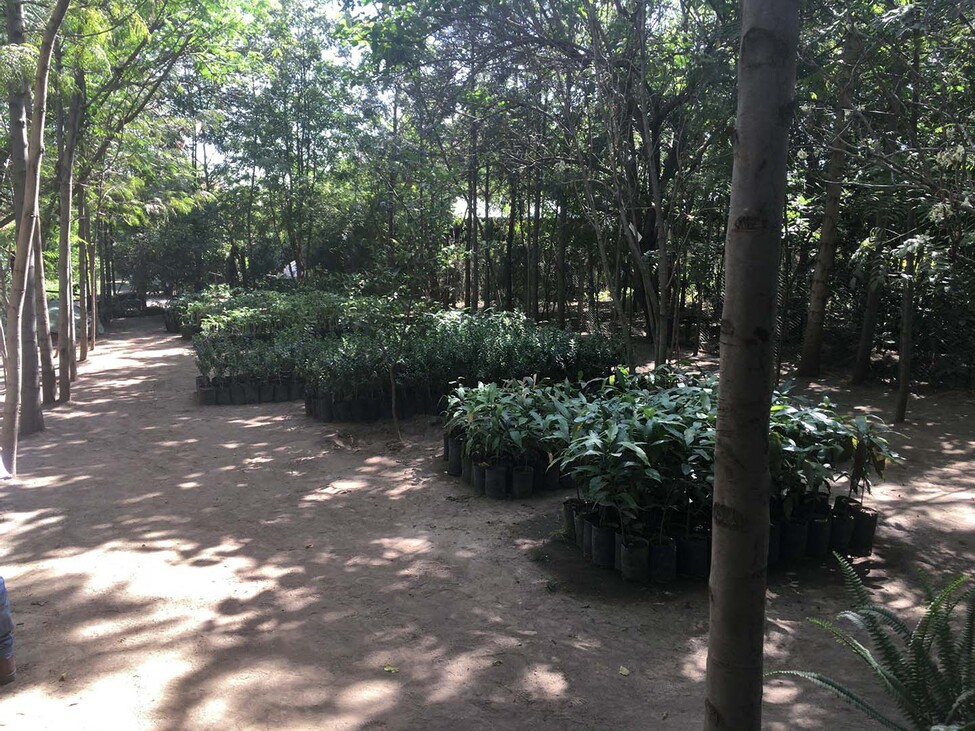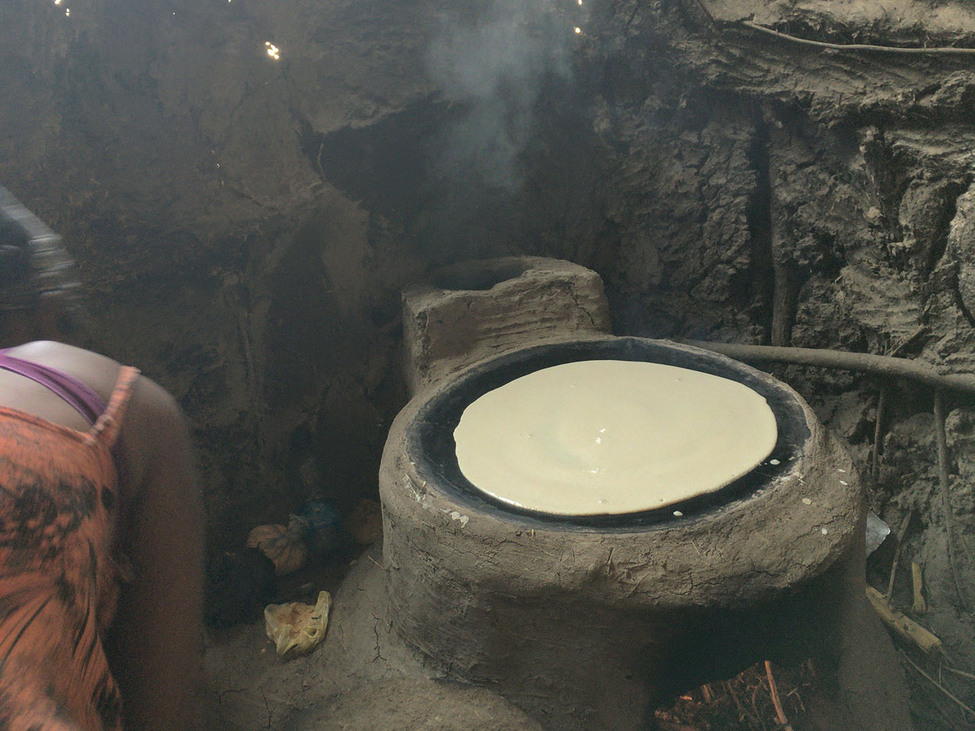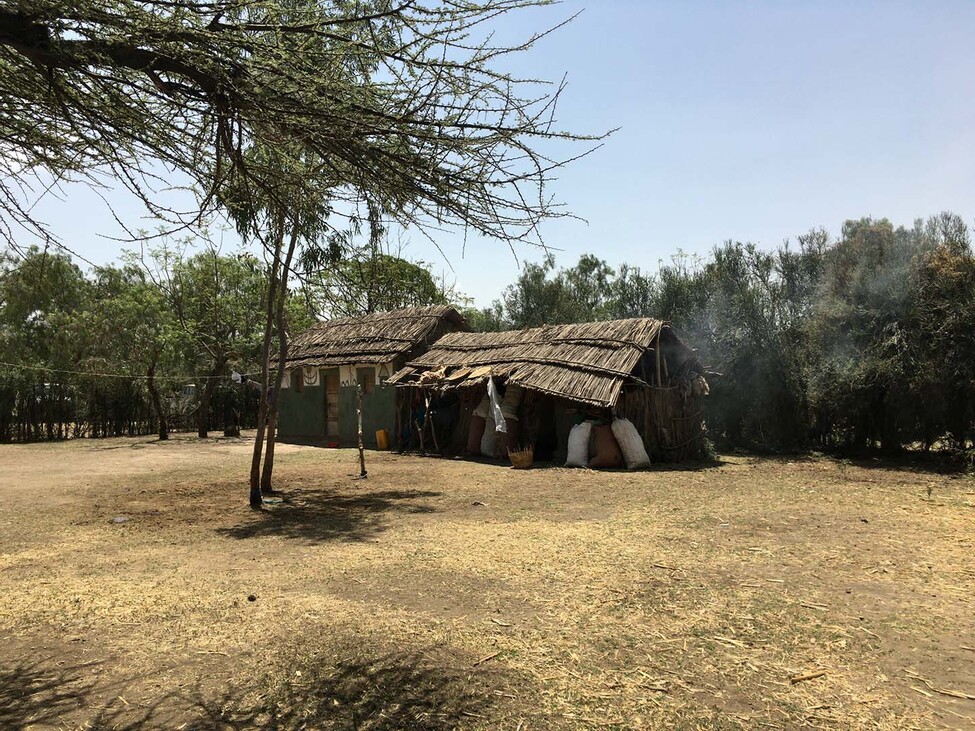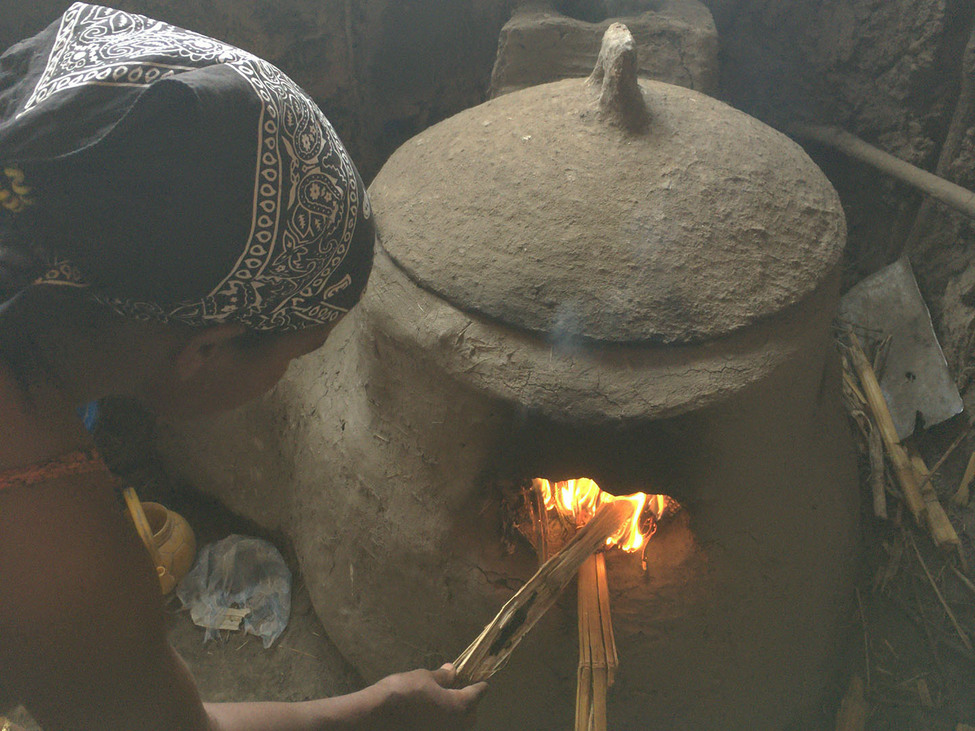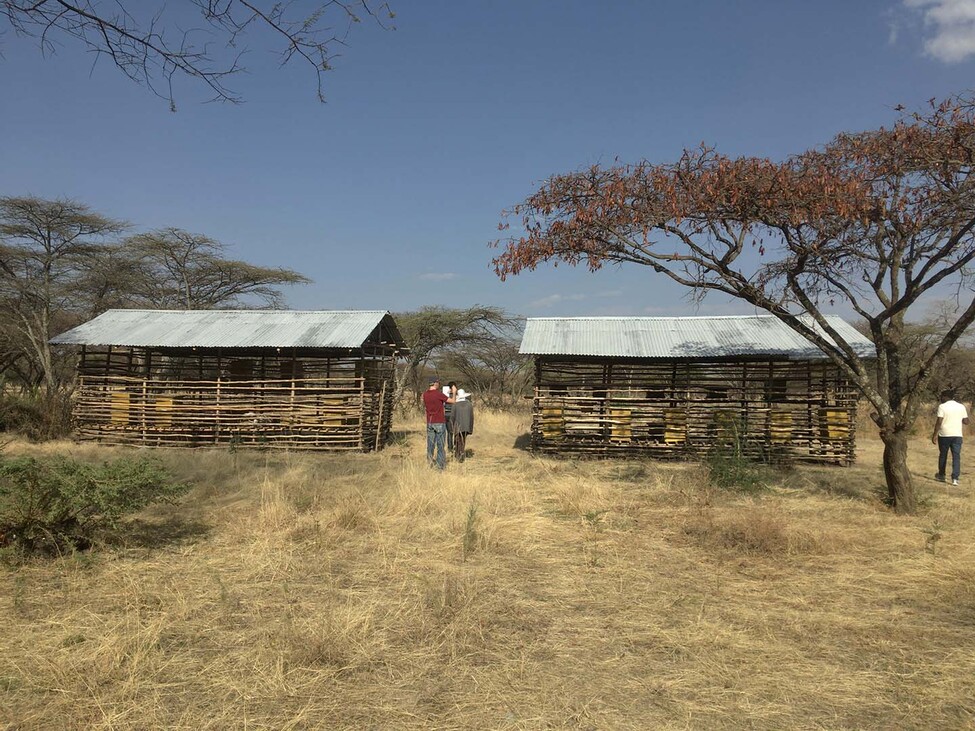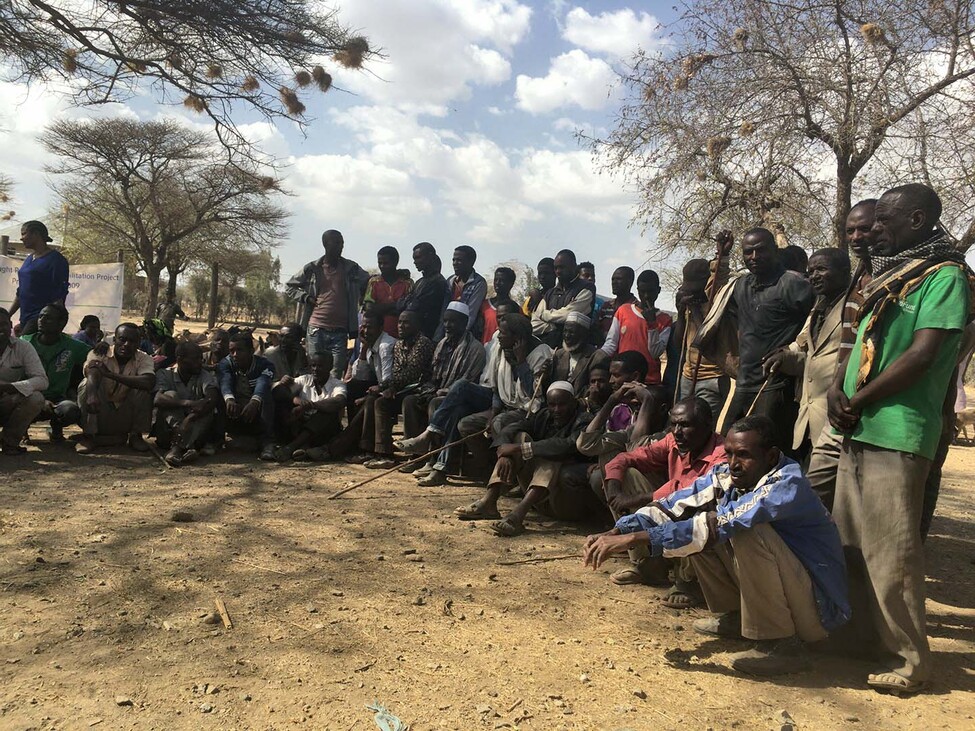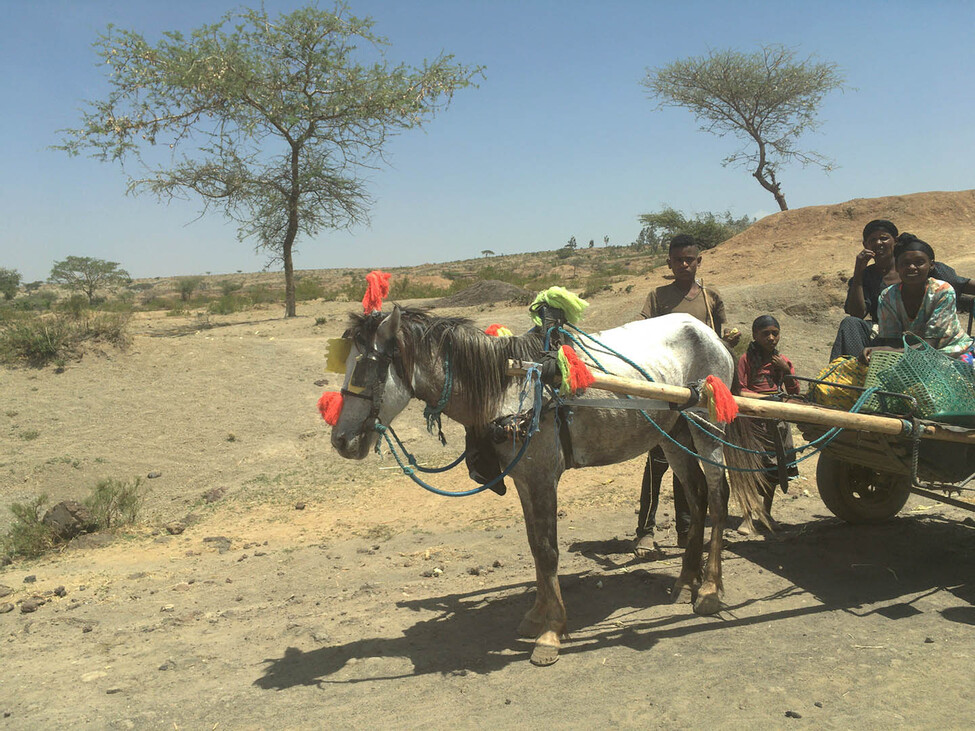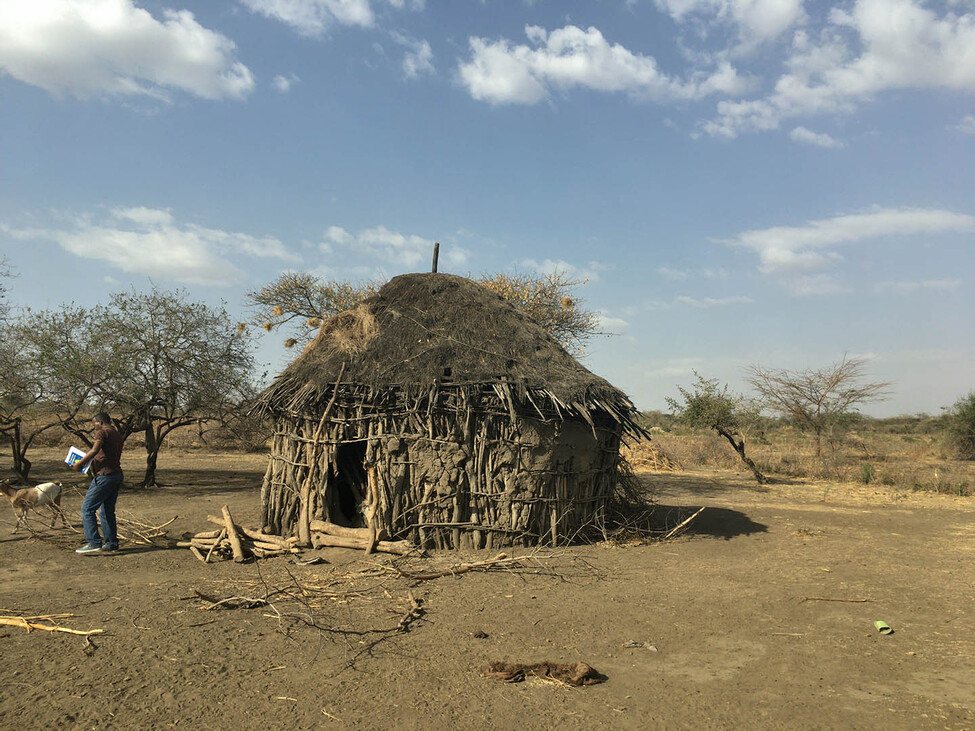In cooperation with the foreign aid programme of Caritas Vorarlberg, around 5,000 households in 8 municipalities covering an area of 400 km² will receive a helping hand.
The complete package for a household includes two efficient cookers, vegetable seeds including training in vegetable cultivation, tree saplings along with a reforestation project, a solar-powered light source and WADI drinking water treatment, which is operated by the power of the sun.
Currently, many households in Ethiopia still cook on open fireplaces. On the one hand, this causes unnecessarily high wood consumption and, on the other hand, an increased risk of injury from fumes and burns. With efficient and regionally manufactured cookers, wood consumption, fumes and the risk of burns can be reduced.
By providing vegetable seeds and tree saplings for personal consumption as well as training on composting and plant cultivation, people can improve the condition of their soils by building up humus. This increases the yield as a result and subsequently guarantees food security.
In addition, households are provided with solar-powered light sources that people install and operate themselves. The solar-powered lamps serve as a replacement for kerosene lamps and are intended to eliminate the risk of emissions from these lamps, which are harmful to health and the climate.
In order to give people access to clean drinking water and thus eliminate the health risk arising from contaminated drinking water, every household receives a practical measuring device called WADI (Water Disinfection). The WADI was developed in Austria and is a solar-powered UV measuring device that shows the point at which the water disinfected by solar UV rays in PET bottles can be consumed.
„The climate protection project in Ethiopia is the first certified project worldwide that focuses on the entire household, where several measures are implemented at the same time. We are very proud of the fact that five measures have been bundled into one package and that this is being implemented by an Austrian cooperation effort.“
Martin Hagleitner-Huber, Head of Foreign Aid at Caritas Vorarlberg
The goals of the project are clearly defined: in five years, a total of 24,000 tons of CO₂e should be saved. It is particularly important to us that the living conditions of the local people improve sustainably through the project. At the same time, the project includes awareness raising among the population and training courses for the residents. Everything in the project area has been engineered to help people. The implementation of the measures is already in full swing.
The distribution of roles has been clearly arranged; turn to zero is mainly responsible for sales and the allocation of the emissions saved. Caritas in Meki is responsible for the implementation on site. The activities are coordinated and regularly checked by Caritas Vorarlberg. In addition, the project is being carried out according to the climate protection standards of the University of Natural Resources and Life Sciences in Vienna. This way, the success of the project is guaranteed.
Achievements so far
- Efficient cookers reduce the consumption of firewood.
- WADI is very effective against bacteria, amoebas, protozoa, single-cell organisms and viruses and reduces the risk of diseases caused by infected drinking water.
- The replacement of kerosene lamps and open fireplaces improves the air quality in people's homes.
- Providing training for the residents promotes awareness.
- Composting and humus processing will increase soil health and bearing capacity.
- Reforestation
